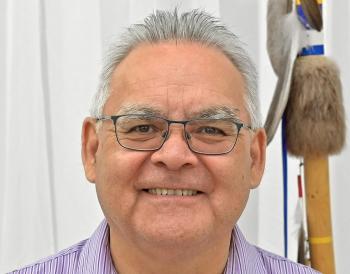Image Caption
Moose Cree First Nation opposes proposed legislative changes for speeding up critical mineral and resource development projects set out in Bill 5—the Protect Ontario by Unleashing our Economy Act.
“This legislation will not unleash our economy,” said Moose Cree First Nation Chief Peter Wesley. “In fact, it erodes trust between Ontario and Moose Cree First Nation and will only delay planning and development because there is no shortcut around First Nations’ rights.”
Ontario says that Bill 5 “is the next step in the government's plan to protect Ontario” in the face of trade tensions with the United States. In Bill 5, this objective comes at the cost of the inherent rights of First Nations. Accelerated strategic development will not be achieved in this way. Partnership with First Nations is the only way forward.
“Moose Cree First Nation recognizes the Government of Ontario’s interest in accelerating mining and infrastructure projects in response to President Trump’s tariffs and threats against Canada’s economy,” said Chief Wesley. “However, development cannot occur in Moose Cree’s Homeland without our consent. Accelerated strategic development can be possible, but it must be done in partnership with us.”
Moose Cree First Nation is a Treaty 9 First Nation and the largest First Nation in northern Ontario. Moose Cree’s Homeland spans over 60,000 square kilometers in northeastern Ontario and will be central to Ontario’s plans for strategic resource development in the face of tariffs and threats from President Trump.
“Moose Cree people have a responsibility to care for the lands and waters in our Homeland, which were a gift to us from the Creator,” said Chief Wesley. “Our people are not against development, but any development must be done with our consent and in a manner consistent with the rights, interests and wellbeing of our people.”
In April of 2025, Moose Cree, along with Taykwa Tagamou Nation, stood shoulder-to-shoulder with Ministers Lecce and Pirie to announce a co-planning process for potential hydroelectric stations in Northern Ontario.
“Only eight days later, Ontario introduced Bill 5, abandoning a productive partnership-based approach that has supported a number of successful, large-scale industrial projects in the Moose Cree Homeland,” said Chief Wesley. “Bill 5 is the exact opposite of that successful approach and shows that this government cannot be trusted.”
Bill 5 spells significant changes for the permitting and approval of mining and other industrial activities in Ontario. If passed, Ontario could create “special economic zones” where “trusted” proponents and “vetted” projects would benefit from changes to or exemptions from permitting and approvals required under Ontario laws or municipal bylaws. Bill 5 leaves the details—including criteria and rules for development in special economic zones—to regulations that have yet to be developed. Bill 5 creates uncertainty for how First Nations would be consulted and accommodated on mining projects and within special economic zones.
Bill 5 also adopts a “registration-first” approach to activities that are harmful to endangered species. Currently, under endangered species legislation in Ontario, activities that are harmful to species and their habitats are prohibited, but the Minister can issue a permit for harmful activities in certain circumstances. If the proposed changes are passed, harmful activities are prohibited unless a proponent registers the activity first. Only in limited circumstances (which Bill 5 does not define) will harmful activities require a permit, and critical habitat will no longer be protected from damage or destruction. Furthermore, Ontario will have no responsibility to develop plans and strategies for the recovery and management of endangered species. These changes are unacceptable.
Earlier this year—before President Trump imposed tariffs on Canadian goods—Moose Cree invited the Government of Ontario to work in partnership to plan for the future of Moose Cree’s Homeland in light of Ontario’s ambitious goals for resource development and economic growth. Ontario did not respond and went on to table Bill 5 in the legislature without consulting with or notifying Moose Cree First Nation.
The United Nations Declaration on the Rights of Indigenous Peoples specifies that First Nations must be engaged regarding projects in their territories with a view to securing their free, prior, and informed consent. This needs to be done before decisions are made. Accelerated strategic development cannot be achieved without partnerships with First Nations.
“Protecting Ontario’s economy is important,” said Chief Wesley. “But it cannot come at the expense of the rights of Indigenous people.”

